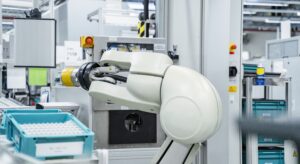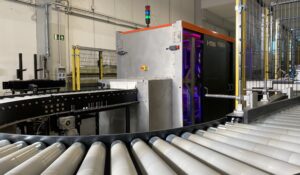In an increasingly competitive and globalized world, supply chains face constant challenges: higher order volumes, demands for speed and accuracy, and the need to optimize resources. Robotic Process Automation (RPA) has become a strategic ally in overcoming these challenges, enabling companies to automate routine tasks and free up resources for higher value activities.
The role of RPA in the supply chain
RPA focuses on the automation of repetitive, rule-based processes such as data entry, reporting and inventory management. In the supply chain, this technology extends its capabilities by integrating with systems such as ERP (Enterprise Resource Planning), WMS (Warehouse Management Systems) and TMS (Transportation Management Systems).
For example, robots can track shipments in real time, process purchase orders and verify vendor invoices, ensuring that data is consistent at all stages of the process. In addition, the robots interface with multiple platforms and systems without the need for expensive integrations, making them easy to implement.
Automation also improves coordination between different actors in the supply chain, such as manufacturers, shippers and distributors, by ensuring smooth and accurate communication.
Main benefits of RPA in the supply chain
Increased speed and efficiency
Robots are capable of executing tasks in seconds that would normally take hours or days, such as planning logistics routes or reconciling data between systems. This speeds up delivery times and optimizes operational processes.
Reduction of errors and operating costs
By eliminating manual intervention, RPA minimizes errors in critical tasks such as data entry, invoice generation and inventory tracking. This saves not only time, but also costs resulting from corrections or delays.
Process automation enables companies to reduce their dependence on human resources for repetitive tasks, freeing employees to focus on strategic activities. This translates into reduced operating costs in the long run.
Better decision making
By providing up-to-date and accurate data in real time, RPA enables managers to make informed decisions more quickly. This is especially useful in critical situations, such as supply chain disruptions.
Regulatory compliance
RPA ensures that processes comply with local and international regulations by automating the generation and archiving of records required for audits.
Success stories in the application of RPA in industry and logistics
Robotic Process Automation (RPA) is transforming logistics and industry with remarkable results. One example is a global automotive company that automated inventory reconciliation, reducing errors by 25% and streamlining audits, allowing the team to focus on strategic activities.
In e-commerce, a medium-sized company implemented robots to manage logistics routes and shipping labels, speeding up order processing by 40% during peak seasons and improving the customer experience.
Moreover, in the food sector, invoice verification has been automated, reducing the time spent on this task by 60% and eliminating errors. Similarly, an electronic components company used RPA in quality audits, increasing product compliance by 30% and optimizing production.
These cases demonstrate how RPA can solve operational challenges, improve efficiency and bring tangible value to companies in these sectors.
A smarter future with RPA
The future of the supply chain is marked by the combination of RPA with advanced technologies such as artificial intelligence (AI) and machine learning. These integrations will enable robots to handle more complex tasks, such as predictive demand analysis and real-time logistics optimization.
Robotic Process Automation offers fast, accurate and scalable solutions. From optimizing inventories to improving customer experience, RPA is redefining how businesses operate in an increasingly connected and demanding world.
Adopting this technology is not only an investment in efficiency, but a key step towards digital transformation. Companies that incorporate RPA will be better prepared to face future challenges, staying competitive in a constantly evolving market. Is your company ready for change?
In the engineering department of i-mas we are specialized in the combination of artificial vision technologies, deep learning and industrial automation in production processes, which allows us to offer integral solutions adapted to the specific needs of each client.
Want to learn more about our services? Contact us or visit our projects section!



